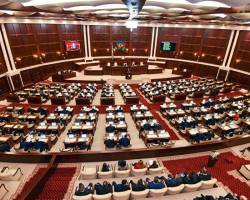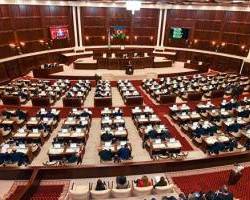Tax Code of Azerbaijan Republic: 2024 Tax Code Amendments
Effective from 1 January 2024, significant amendments have been introduced into the Tax Code of Azerbaijan (“Amendments”). Below we summarize the most important clauses of these Amendments.
RISKY TAXPAYERS AND SANCTIONS:
- According to Amendments made to the Tax Code, the rules for being included in or removed from the list of risky taxpayers will now be determined by the Cabinet of Ministers. No such previous specific rules were determined and these matters were left to be regulated by the general clauses of the Tax Code. Due to complexities in practice, now it is determined to have such specific rules which would be adopted by the Cabinet of Ministers within three months in line with the Presidential Decree.
- Additionally, new additions include further sanctions to be applied to taxpayers which are considered as “risky taxpayers” and posted in the Risky Taxpayer List. If a taxpayer is determined to be risky through tax control measures in the context of non-commodity transactions, the following financial sanctions are applied:
- 10% of the amount of the non-commodity transaction for the first occurrence within a calendar year;
- 20% for the second occurrence within the same year;
- 40% for three or more occurrences within the same year.
- These penalty provisions regarding risky taxpayers will come into force when the above mentioned rules for being included in or removed from the list of risky taxpayers are adopted by the Cabinet of Ministers.
- Where the income subject to tax by the taxpayer is not documented, but related information on deductible expenses is available, taxable profit (income) will be calculated considering a 50% profitability rate. When determining taxable profit, the actual profit (income) documented with documents will be determined as not exceeding a 50% profitability rate until January 1, 2025. Thereafter, taxable profit (income) will be determined based on actually documented income and expenses.
- The clause (Article 83.9 of the Tax Code) referring to tax liability in line with the Regulations of the Cabinet of Ministers which specify 20% conditional profitability rate, applied where it was impossible to determine the taxpayer’s income, is now revoked.
- When taxes are calculated on the basis of related information and information about analogous taxpayers, the amount of the tax will be determined by multiplying the amount of the taxpayer's income or deductibles, respectively, by a coefficient indicating the specific weight of the tax in the income or deductibles in that reporting period.
TAX PROCEDURES:
- Additional circumstances under which it is not possible to extend the deadline for fulfilling tax obligations for taxpayers include:
- If the taxpayer has not fulfilled the extended tax obligation on time over the past one year;
- Or if the taxpayer has not made a payment equal to 10% of the tax debt for which the extension is sought, then the extension will not be granted.
New procedures for extending the deadline for fulfilling tax obligations now authorizes the tax authority to submit a written notice to the taxpayer about the mandatory 10% payment of the tax debt. The decision to extend tax payment period will be made once the appropriate payment has been made within 3 business days from the date the taxpayer receives this notice.
Furthermore, the procedure for payments regarding debt amounts secured by a legally enforceable court decision also changes. Debts secured by such decision will be paid separately for each decision, regardless of the order of payments set in the Tax Code.
ELECTRONIC INVOICES:
- If taxpayers receive advance payments for any work (service, goods) to be performed, an electronic invoice for the value of the advance must be provided to the customer on the day it is received (previously, no such obligation was prescribed for advance payments).
- For this purpose, from 2024, a new section- "Alınmış avans ödənişləri barədə" (About received advance payments) must be selected when creating an invoice in the electronic system.
SEIZURE OF PROPERTY:
- In addition to the documents submitted to the taxpayer for the seizure of property, a corresponding written notifice will be sent to the taxpayer along with the decision issued by the tax authority on the seizure of property, in order to submit the property of the debtor taxpayer who owns immovable and movable property registered in the state register to seizure proceedings.
- If the taxpayer fails to submit the immovable and movable property in the state register to the seizure within the time and place specified in the notification even after receiving a corresponding written notification by the tax authority, that property shall be subject to the registration of will be seized by the tax authority without the presence of the taxpayer (his legal and (or) authorized representative) and observers.
- If the taxpayer (or their legal/authorized representative) does not participate in the seizure of property, the tax authority officials conducting the seizure will send a copy of protocol on seizure of property along with attachments to the taxpayer (or their legal/authorized representative) within 1 business day.
- After completing the seizure of movable and immovable property in accordance with this Code, the tax authority will provide information about the encumbrance of such property to the competent state authority (institution) maintaining the state registry within 1 business day, either electronically or on paper.
CHANGES FOR TAXI ORDER OPERATORS:
Starting from 2024, the following clauses have been added to the Tax Code for the regulation of tax matters concerning taxi services:
- A new duty is prescribed for the relevant taxpayers:
- Taxi order operators, through their information system, must submit monthly information specified by the relevant executive authority after the end of each month, no later than the 20th of the following month.
Continuing from the above, taxi order operators who fail to provide the information specified in Article 16.1.11-13 within the specified period or who submit falsified information will be subject to a financial sanction of AZN 1000.
Note: The above provisions related to taxi order operators will come into force from the date the law specified by the relevant executive authority's designated organization (institution) comes into force.
EXEMPTIONS:
FOR INDIVIDUALS:
- The value of gifts, financial aid for tuition fees, and lump-sum allowance received by individuals is increased up to AZN 2500;
- Dividend income of individuals who are shareholders of resident legal entities engaged in agricultural production (including industrial methods) - for a period of 4 years from January 1, 2023;
- Monthly interest income up to AZN 200 on deposits in national currency held by individuals at each local bank or a foreign bank's branch in Azerbaijan;
- The entire amount of interest income when individuals place deposits in national currency at local banks or a foreign banks’ branches in Azerbaijan for a period of 18 months or longer, provided that the deposit amount is not withdrawn before the end of 18 months – for a period of 3 years;
- Revenues earned from the cashless payment of VAT on goods purchased from individuals engaged in retail trade or public catering activities in Azerbaijan, as well as on residential and non-residential areas purchased cashlessly from individuals engaged in construction activities in Azerbaijan, and on accommodation and staying services (excluding other additional services) provided by hotels (including those located in liberated territories);
- Revenues earned by individuals engaged in private medical practice from the reduction of VAT calculated for medical services provided to the population during the reporting period when payments are made through POS terminals in a cashless manner are exempt from tax.
- 25% of the annual mandatory state social insurance fee paid by individuals engaged in micro-entrepreneurship activities for themselves from January 1, 2024, for a period of 3 years, calculated according to the results of the taxpayer's calendar year and payable after deducting the loss of previous years deducted from the income tax liability (not exceeding the amount of those liabilities).
- 75% of the income from entrepreneurial activities of individual entrepreneurs who are micro-entrepreneurship subjects with a minimum 3 (three) employees (average monthly), provided that no debt for mandatory state social insurance fees for the relevant year exists;
The average monthly number of employees for the relevant year is determined by dividing the total number of employees for the calendar year by 12.
If the taxpayer does not meet the condition specified in this article and moves from being a micro-entrepreneurship subject to another category of entrepreneurship subject in the next reporting year, a tax exemption amounting to 75% of the income tax calculated and paid for the previous 3 calendar years during which the individual entrepreneur was a micro-entrepreneur is determined, and the exemption is applied to the income tax liability for the periods when the taxpayer was another category of entrepreneurship subject.
Moreover, exemptions on incomes earned by individuals will no longer apply to parents, spouses, and children of persons who died during the defence of the territorial integrity of the Republic of Azerbaijan, as well as during the intervention of the USSR troops on January 20, 1990.
For Legal Entities:
After the recent amendments, the following additions and corrections have been made to the Code:
- The fees and rewards received by the mediation organization in connection with the mediation service provided by the mediators acting on the basis of the civil-law contract concluded with the mediation organization, which must be paid to those mediators, is not included in the taxable income of the mediation organization.
- Up to 15% of the taxpayer's profit for the reporting year, if transferred to entities, administrations, and organizations engaged in science, education, health, sports, and culture, as determined by the relevant executive authority, is considered non-cash expenses for a period of 5 years starting from January 1, 2024.
- 75% of the profit earned from film production and dubbing by cinematography enterprises registered in the Republic of Azerbaijan, which are not micro-entrepreneurial subjects - is applicable for 3 years from January 1, 2024.
- Revenues obtained from the reduction in VAT for medical services provided to the population in non-cash form through POS terminals by medical institutions and private medical practitioners.
- 75% of the profit earned by legal entities who are micro-entrepreneurship subjects with a minimum 3 (three) employees (average monthly), provided that no debt for mandatory state social insurance premiums exist.
The average monthly number of employees for the relevant year is determined by dividing the total number of employees for the calendar year by 12.
If a taxpayer does not meet these conditions in the following year and transfers from a micro-entrepreneurship subject to another category, a tax exemption is calculated based on 75% of the profit tax paid over the previous three years.
In the case of non-commodity transactions carried out by the taxpayer, the tax exemptions specified in this article shall not be applied to the income arising from non-commodity transactions.
Moreover, the exemption applied to the amounts of export incentives paid from the funds of the state budget by the body (institution) determined by the relevant executive authority has been cancelled.
DEDUCTIBLE EXPENSES:
- For goods not documented as per the Tax Code, financial sanctions are applied to the taxpayer, and the purchase price or the wholesale market price is considered for deduction.
- From 2024, deductible norms related to representation, housing and food for employees, and prophylactic nutrition for workers in harmful, difficult, and underground conditions will be determined by the relevant executive authority.
- Social expenses and entertainment expenses of employees and their family members are not allowed to be deducted from income, except for the expenses provided for in the above paragraph.
- The upper limit for deductibles for the purchase of agricultural products, scrap metals, paper, glass, and plastic products, used tires, and raw leather, and for other goods (except real estate, vehicles, and movable assets) from non-registered individuals equals to 2% of the taxpayer's annual income and expenses.
- Banks that declared bankrupt have the right to deduct special reserves created for taxation purposes.
- For repair expenses, up to 8% of the residual value of trucks can be deducted at the end of the year.
Repair expenses for assets not accounted for in the lessee's balance and not reimbursed by the lessor are amortized over the lease term but not less than five years. Costs incurred for the repair of leased fixed assets are capitalized separately for each year and amortized in accordance with this article. The remaining amount of repair costs which incurred by the lessee which capitalized and amortized according to the above article until the new changes come into force are amortized in accordance with this article.
- Another change concerns the deduction of amortization and repair expenses below the standard rate during periods when the taxpayer is eligible for profit tax concessions. The resulting amounts should not be added to the deductibles in subsequent years.
LEASING OPERATIONS:
The condition that “the leased property must be produced under the order of the lessee and not be used by third parties after the lease term” is deleted from the requirement about lease operations. After the Amendments, a lease is considered financial leasing if the any of the following four conditions is met (these condition were not changed):
- The lease agreement stipulates the transfer of property ownership after the lease term, or the lessee has the right to purchase the property at a predetermined or estimated price, or;
- The lease term exceeds 75% of the operational life of the leased property, or;
- The residual value of the property after the lease term, as determined by the Tax Code, is less than 20% of its market value at the beginning of the lease, or;
- The amount of lease payment is at least 90% of the market value of the property at the beginning of the lease.
Furthermore, if the financial leasing contract is prematurely terminated, if the transaction does not meet the above-mentioned conditions, such transaction is not considered as financial leasing, being the leasing of property. In this case, tax clarification is carried out in the reporting period in which the change in the assessment base occurs and is clarified in the declaration submitted by the taxpayer for the reporting period. In the event that the lessee under the financial leasing contract submits his rights and obligations under this contract to another person, the relationship between the lessor and the new buyer is considered a financial lease and is considered a continuation of the previous financial leasing contract.
VALUE ADDED TAX (VAT):
- Entities involved in public catering whose volume of taxable transactions exceeds AZN 200,000 in any month of a consecutive 12-month period must notify the tax authority in writing within 10 days from the first day of the following month that they will continue their activities as simplified tax payers.
- The following transactions are exempt from VAT:
- Interest paid for financial leasing operations;
- The provision of assets (main funds) under financial leasing agreements related to operations exempt from VAT or not subject to VAT;
- Services and works for the Central Bank of Azerbaijan, including technical service for treasury equipment, production, transportation, storage, insurance of money signs, audit of production processes, expertise, maintenance and management of international gold and currency reserves, support services for information systems, and consulting services related to the implementation of the Central Bank's objectives and functions;
- Medical services provided by educational medical institutions - for a period of 3 years from January 1, 2024;
- Import of crude oil and natural gas within swap operations based on a supporting document issued by the relevant executive authority's determined authority - for a period of 3 years from January 1, 2024.
- 50% of the turnover generated from cashless payments through POS terminals for medical services provided to the population by medical institutions and private medical practitioners during the reporting period is deducted from their total taxable turnover for 3 years from January 1, 2024.
- Taxpayers engaged in the wholesale and retail sale of imported agricultural products are entitled to reclaim the VAT paid for these products and calculate VAT on the full value of the transaction when presenting these products. They must submit a confirmation form approved by the relevant executive authority to the tax authority before importing agricultural products from January 1, 2024. If the taxpayer does not submit the confirmation form within the specified period, the VAT amount is not compensated. The choice made under this article cannot be changed within a year.
- For factoring operations related to debts arising from purchased goods (works, services), the VAT amount is reimbursable when paid to the factor's (assignee's) bank account, and the VAT amount is paid into the seller's VAT deposit account.
EXCISE TAX:
The following excisable goods must be marked mandatorily:
- Tobacco products and their substitutes;
- Disposable electronic cigarettes, hookahs, and their substitutes;
- Liquids for electronic cigarettes.
Excise taxes for these goods are paid at the time of obtaining the mandatory mark, either when produced in Azerbaijan or imported. If these goods are imported for re-export purposes, the import date is considered the date of obtaining the mandatory mark.
If a legal entity producing these goods is liquidated or an individual entrepreneur ceases operations, and inactivated mandatory marks remain, the taxpayer is entitled to a refund of the excise amounts paid for these marks.
If excise rates increase, taxpayers who paid tax at a lower rate when obtaining mandatory marks must reflect the difference in the excise declaration for the month when the change took effect and pay the difference to the state budget by the 20th of the following month. In case of imports, this difference is reflected in the customs declaration.
If excise rates decrease, taxpayers who paid tax at a higher rate when obtaining mandatory marks reduce their excise liability by reflecting the difference in the excise declaration for the month when the change took effect.
- The list of excisable goods has been updated, including:
- Tobacco products and their substitutes;
- Disposable electronic cigarettes, hookahs, and their substitutes;
- Liquids for electronic cigarettes;
- Alcoholic spirits, beer (excluding non-alcoholic beer), and all types of alcoholic beverages;
- Energy drinks;
- Petroleum products;
- Passenger cars (excluding special-purpose vehicles equipped with special signs and equipment);
- Buses (excluding buses operating on compressed gas);
- Motorcycles that require state registration;
- Yachts and other floating devices for leisure or sports;
- Imported platinum, gold, jewellery, and household items made from gold, processed, sorted, framed, and fixed diamonds;
- Imported fur products.
Updated articles also cover excise tax rates from 2024:
- AZN 4.8 per litre of drinking alcohol, vodka (vodka), dark drinks and dark drink materials, liquor and liquor products, cognac and cognac materials;
- AZN 0.2 per litre of champagne; 45.50 AZN per 1000 cigarillos, cigarettes made from tobacco and their substitutes;
- AZN 16 per 1,000 for products containing tobacco or regenerated tobacco intended for inhalation without ignition;
- an excise tax of AZN 2 has been established for single-use electronic cigarettes, hookahs and their substitutes.
- Excise tax for motorcycles when the engine volume is up to 125 cubic centimetres – AZN 0.20 per cubic centimetre of the engine volume; if the volume of the engine is up to 500 cubic centimetres – AZN 25 + AZN 0.40 per cubic centimetre for the part of the engine volume of 126-500 cubic centimetres; if the volume of the engine is more than 500 cubic centimetres – AZN 175 + AZN 0.50 per cubic centimetre for the part of the engine volume more than 500 cubic centimetres.
PROPERTY TAX:
- Credit institutions are exempt from property tax for properties acquired against issued credits for 2 years starting from the year the property is added to the balance.
- Property tax is reduced by 75% for a period of 3 years from January 1, 2024, for properties used as hotels and sanatoriums outside Baku, Sumgait, Xırdalan cities, and Absheron district, including Nakhichevan Autonomous Republic, except when entrepreneurial activities are temporarily suspended.
LAND TAX:
The deadline for submitting the land tax declaration has been changed. Now, the declaration must be submitted no later than January 31st of the year following the reporting year. A legal entity or permanent representation of a non-resident legal entity must submit the land tax declaration to the tax authority within 30 days from the date of presenting the liquidation balance to the registration authority.
Current land tax payments by institutions are made in equal amounts no later than August 15th and November 15th. Each payment amount constitutes half of the tax amount calculated for the previous tax year.
Institutions that were not land tax payers in the previous year but become payers in the next year, as well as newly established entities that are land tax payers, must make current tax payments amounting to 50% of the annual land tax amount for the acquired land areas within the specified periods.
Current land tax payments are credited against the tax amount levied for the tax year. These payments are recalculated after the end of the fiscal year. If the recalculated current tax amount exceeds the tax amount for the reporting period, the excess amount and corresponding interest are reduced.
When a taxpayer acquires or ceases the right to own or use land, including state and municipal property, the tax amount is proportionally calculated from the month following the month when the right was acquired or ceased.
SIMPLIFIED TAX:
Taxpayers who have the right to be simplified tax payers but are VAT payers can apply to continue their activity as income (profit) tax payers or in accordance with Article 218.1.1 of the Tax Code after their VAT registration is cancelled.
Persons engaged in public catering whose total amount of taxable transactions exceeds AZN 200,000 in any month of a consecutive 12-month period can apply to continue their activities as simplified tax or income (profit) tax payers at any time, provided their total taxable operations do not exceed AZN 100,000 in the previous full 12 calendar months and they have been operating under this regime for at least one year.
- The exemption of amounts paid for export promotion from the state budget from simplified tax has been cancelled.
- The mandatory right to be a simplified tax payer for cargo transportation has also been cancelled.
- Physical persons who are micro-entrepreneurship subjects and operate as simplified tax payers can deduct 25% of the mandatory state social insurance fee paid for themselves from their quarterly simplified tax liability for 3 years from January 1, 2024.
- Taxpayers engaged in cargo transportation are not required to pay taxes, mandatory state social insurance, and compulsory medical insurance for obtaining the "Distinction Sign," and these obligations are fulfilled by those persons in accordance with the law.
For our latest guide, click to read about Tax Inspections and Audits in Azerbaijan: Regulations and case-law.
Note: This Article shall not be referred to or used as an opinion. Our professional team of tax lawyers and accounting specialists at Caspian Legal Center would be glad to asisst you about any tax planning, advisory, tax optimization, tax accounting matters and resolution of tax and international taxation disputes. Contact us via: [email protected]

_(1)-800x400.jpg)



